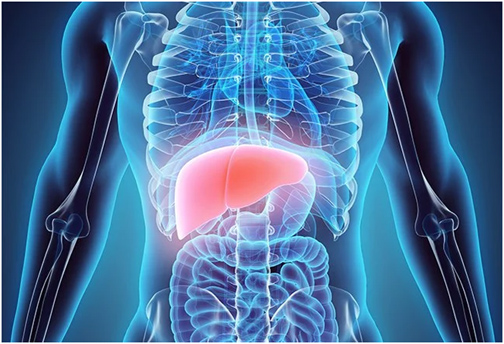The liver is an essential part of the human body. It filters the blood that leaves the stomach and intestines and then breaks down, regulates, and produces nutrients in this blood, as well as digesting drugs into forms that are easier for the human body to use or that are harmless. Hence, it is extremely necessary for us to take good care of our liver. This Work Liver Day, we will focus on ways in, which we can maintain a healthy and proper-functioning liver. Here are some changes you can make to your lifestyle to promote healthy liver:
Workout regularly
Working out is extremely important and beneficial not only for maintaining a healthy liver but for our overall health. Exercise relieves liver tension, boosts productivity, and helps avoid obesity, which is a potential risk for liver problems. Lifting weights enhances muscle and bone strength. Women, in particular, need to retain muscle and bone strength since liver disease makes bones more prone to osteoporosis. Weight lifting also helps to reduce body fat, build correct body weight, and improve metabolic activity.
Eating a healthy diet
Just like working out, eating healthy is extremely important too. We need to consume a diet high in nutrients in order to maintain good health. Liver health is also boosted when we consume a healthy, high-nutrition diet. The body requires 7 different types of nutrients; Carbohydrates, proteins, lipids (fats), vitamins, minerals, fibre, and water, all of which should be consumed daily. In order to regularly consume a balanced diet, we must know what foods provide us with these 7 important nutrients. Here’s a list of foods to incorporate into your diet:
Carbohydrates
Carbs are often considered unhealthy or low in nutrition however, they are extremely important for a healthy balanced diet. Healthy carbs boost metabolism and the digestive system. High carb foods include milk, potatoes, grains and grain products (flour, rotis, bread, pizza, etc.).
Proteins
Proteins generally assist the body in repairing tissues. They also protect the liver cells from fatty deposits and/or any damages they may cause. High-protein foods include dairy products, fish, poultry, chickpeas etc.
Lipids (fats)
Fats are another nutrient that is often considered unhealthy however they are not. Healthy fats are very important for the body as they are healthy the body extracts various vitamins. Various vitamins are fat-soluble. Meaning, that they cannot be absorbed by the body without the help of fats. Some of the healthy fat foods include nuts (dried fruits), whole eggs, cheese, etc.
Vitamins
Vitamins help boost our immune system, heal injuries and support bones. Furthermore, vitamins help the body convert food into energy. Some vitamin-rich foods include citrus fruits (lemons, oranges), and green and/or leafy vegetables (broccoli, spinach, green beans).
Minerals
Minerals are very important for the proper functioning of various organs. Minerals include calcium, iron, etc. Some high-mineral foods are meats, dairy products, fruits and vegetables, etc.
Fibre
Fibre helps digest foods smoothly. It is essential in maintaining a healthy bowel. Some high-fibre foods are: fruits (apples, pears, etc.) and vegetables (beetroots, carrots, etc.)
Water
Water is extremely important for the liver. It helps maintain and detoxify the liver. An average person must consume at least 2.7 litres of water daily.
Say no to alcohol and substances
Alcohol and illicit drugs hugely contribute to the degradation of the liver. Several liver cells die every time our liver processes alcohol. Our liver can regenerate new cells, however long-term alcohol abuse can weaken its capacity to do so. Our liver can be irreversibly harmed as a result of excessive drinking. Drugs can harm the liver by causing serious harm to liver cells and/ or preventing biliary flow out of the liver. Source: NDTV
